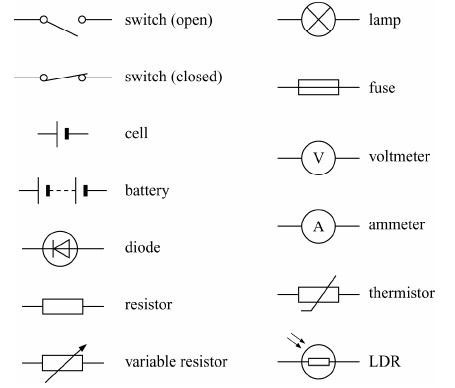
'Recognizing the need is the primary condition for design.'
Milton Glaser
Electronic Components
Task 1 - Investigate and record electronic component symbology
- Utlise the prezi below, sketch and label the components
- Cattogarise the components accordingly, i.e. Switches, Outputs etc
- List the components you think could be used in an amplifier circuit
Task 2 - Drawing a complex ciruit using standard symbols
Arrange component symbols through sketches to draw out circuits for specific purposes
Devise a possible electronic solution for an identified need using knowledge of components
Thought test the solution through peer discussion, Identify possible extensions or improvements
Context
A millionare rock star has a problem with his pet tiger.
It keeps excaping from its enclosure, there is no celing but the walls are 20 meters high.
On one wall there are some steps but they are too small for the tiger surely
10 Meters up one wall is an opening 500mm X 500mm, but the tiger can only get there if it could jump that far...
Unforetunately the tiger is terified of FLASINNG LIGHTS and has very dark warm paws.
Brief:
You are in a team of electrical engineers that have to come up with an electriconic system to stop the tiger excaping from this enclosure. You have the components below to build your curiuit with.
The rewards are enormous!
Use these components to design your tiger trap / alarm system.
Diodes let current flow one way only.
Resistors resist some current flowing throiugh them
Variable resistors can be incresed or decresed manually
A fuse can be used to break the circuit if too much current is passed through it
LDRs only pass or stop passing current when they are light or dark
A thermistor will detect heat
AND DONT FORGET THE FLASHING LIGHTS!
Task 3 - Using circuit building computer applications to design test circuits
Utilise a circuit building application to create a mock up of your diagram
Test the circuit and identify any faults in a list
Share your work with others and solve any faults in the circuits.

